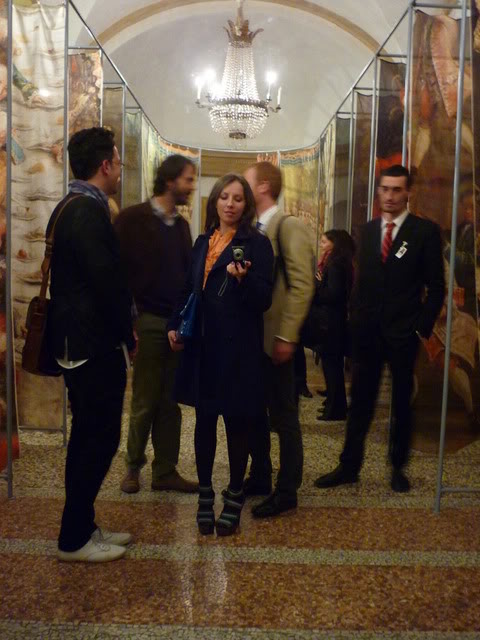
from the Fallen Princesses series by Dina Goldstein
This is why it's never a good idea to spend the weekend reading only books about neuroscience and Lucan's Pharsalia.
Last night's epic dream:
Things started off innocently enough. I was driving an old beat up car down a dusty, deserted freeway in Phoenix when I pulled the car over onto the side of the road. I got out of the car and walked down a hill, whereupon Phoenix turned into a huge lake in the middle of a tropical jungle. I crossed the lake on a series of primary-coloured plastic stepping-stone box things until they began to crumble into the lake and I had to dive in and swim. Obviously, I couldn't swim with my flip-flops on so I took them off and set them on one of the crumbling boxes while stopping to save a turtle who was trapped inside the box. After swimming for quite some time, it turned out that the jungle lake was actually a water feature at Claridge's (go figure). As I was swimming out of the lake, a bell hop ran up to me carrying my discarded flip-flops and told me to be careful that no one saw me in the lake - it was a protected environment and he didn't want to piss of the eco-people staying in the hotel as part of a big scientific conference. He also mentioned that if the eco-people knew I was swimming in the lake, my funding would be pulled. He gave me a white tuxedo blazer to wear and I began to go about my merry way, when I thought - fuck it, I'm here - so I turned about and went into Claridge's for lunch. Once seated, two preposterously obnoxious children proceeded to terrorise me until I pawned them off on the very charming couple sitting at the table beside me.
After lunch, I went back outside. The lake and Claridge's had disappeared only to be replaced by a landscape resembling the war-torn Afghani countryside, though it turned out to be a video game. Of course in this video game world, civil war was raging and the video game people had managed to trick a group of real world people into entering the video game 'to play' at war. All the men had gone off to fight and the video game women were explaining to the real world women that it would soon be their turn to fight. Some of the real world women began complaining that it wasn't their world so why should they have to fight. At this, the ringleader lady of the video game people turned into a giant jelly baby and knocked six shades of Hades into the women who had been complaining. The ringleader lady kept calling me Ingrid Bergman and asked me what I was going to do, whereupon I made a rousing speech about fighting for liberty and honour. I said that even if we weren't fighting for our own freedom were were still fighting for the cause of liberty and that there was nothing more honourable than the fight for freedom. I screamed 'vivre libre ou mourir' at the top of my lungs and we all ran off over the hill to fight.
Mental.




